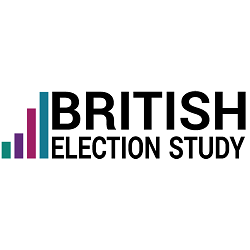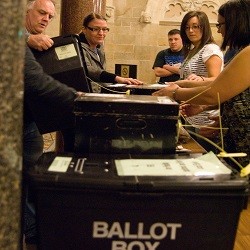News - BES Resources
Here you will find a range of resources that we think may be helpful in analysing BES data.
The following links may be helpful in accessing statistical software commonly used to analyse social science data:
• stata
• SPSS
• Installing R
• RStudio

British Election Study – PhD Opportunity
We are pleased to announce the opportunity of a fully funded PhD position (including fees and maintenance) within Politics at Manchester. “Studying how the economy shapes voting using new ‘big data’ and the British Election Study” This is a CASE award in conjunction with the…

Updated 2015 General Election Results File
Today we are releasing an updated version of our 2015 General Election results file (version 2.2). The update adds candidate spending data from the Electoral Commission (expressed as a percentage of the long and short spending limits for each constituency) and corrects a small number of errors in…

Brexit Britain: British Election Study Insights from the post-EU Referendum wave of...
We are pleased to release new British Election Study insights into the Brexit vote. In this blog we explore some of the deeper features of a nation divided by support for Leave or Remain. These divisions help us to understand the routes to Brexit and…

BES Internet Panel Post-EU Referendum Survey Released (wave 9)
The British Election Study is pleased to announce the release of the wave 9 of our Internet Panel survey together with some new findings based on these newly released data. Wave 9 constitutes the post-referendum wave of the three wave BES EU referendum study and was…
Release of EU Referendum Daily Campaign Data (wave 8 of the BES...
The British Election Study is pleased to announce the release of the wave 8 of our Internet Panel survey. Wave 8 constitutes the daily campaign wave of the ESRC’s ‘Panel Survey Study of the 2016 EU Referendum’ (Ref. ES/P001734/1, University of Oxford). This is a BES linked…

Wave 7 of the BES Internet Panel Released
The British Election Study is pleased to announce the release of the seventh wave of our Internet Panel survey. Wave 7 was conducted immediately prior to the 2016 local Elections. We will also be releasing wave 8 – a rolling campaign wave stretching from the…
The New Face Of British Class Voting, by Jonathan Mellon and Geoffrey...
The British Election Study is releasing data on the occupational position of respondents of the 2015 face-to-face post-election survey. Respondents’ open ended respondents were coded to standardized occupational codes, which are then coded into social class positions. We manually coded all British Election Study face-to-face…

When attitudes and behaviour collide: how a referendum can upset the party...
By Ed Fieldhouse and Chris Prosser Imagine the following scenario: a referendum in which the major political parties and establishment are arguing in favour of the status quo, against a growing but enthusiastic minority who argue in favour of breaking away from the union and…

2015 and Social Media: New iBES data released! By Rachel Gibson and...
The BES team are pleased to announce the first stage data release from the internet module of the 2015 British Election Study (iBES). This release consists of a daily tracking file compiled by Crimson Hexagon[1] over the course of the campaign. Tweets from the ‘Firehose’…

BES Vote Validation Variable added to Face to Face Post-Election Survey
It may be a truism to say that elections are decided by those who turn out to vote but from the impact of local campaigns, to understanding why the polls went wrong, knowing who votes and who doesn’t is key to understanding British elections. The…
